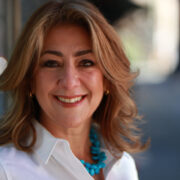
Transgenerational inheritance has been studied for hundreds of years. In his work with hysterics, Jean-Martin Charcot (1825-1893) believed that neurotic disorders were hereditary. Freud (1856-1939), in turn, came to the conclusion that both in the person and in the group, the impressions of the past remain in the form of unconscious mnemonic traces, fruits of repressed contents. Recently, epigenetics has focused on the possibility that psychological inheritance results from the way a person’s life history changes the way their DNA is read by cells.
In this latest edition of Editora Maralto, “Herança”, by award-winning author Jacques Fux from Minas Gerais, the traumas of the Holocaust are remembered and remarked through the reports of three generations of women. Using sources such as diaries and therapy sessions, Fux immerses the reader in the events of Auschwitz and offers a moving account of the universality of the questions and anxieties that plague humanity.
“Inheritance” tells the three voices story of a family: Sarah K., born in Łódź, Poland, in 1926; Clara K., born in São Paulo in 1949; and Loly K., born in Recife, in 1984. Three generations who share their experiences with Nazism. By getting to know Sarah’s diary, the reader will share the discovery of love and at the same time witness the terror of life in the ghetto and the extermination of the Jews. From Clara, Sarah’s daughter, it will be possible to discover themes rooted in her psychoanalysis. Lola, Sarah’s granddaughter, Clara’s daughter-and Luiza’s mother-writes notes about what she gradually discovers about her family and takes her life through that lens. Check out the interview!
Recently released on the literary circuit, “Herança”, is one of those works that makes us think about what our species has already been capable of doing, in this case, in terms of cruelty, which was the holocaust. Is writing about a subject as delicate as this a challenge?
Yes. It is always a challenge to address the issue of the Holocaust (Shoah) in a serious and thoughtful way. All the references that appear in the book are historical, documented and from consecrated sources.
Hundreds of years ago, several scholars such as Jean-Martin Charcot (1825-1893) and Freud (1856-1939) sought to study our transgenerational heritage, each with their respective views. How was your connection to these studies and how much work did you have until “Inheritance” was completed?
I did my postdoctoral work at Harvard University dealing with the issue of testimony – the account of survivors of extreme events (dictatorship, genocide, holocaust). I delved into the issue of the Shoah and the specificities of each generation: that of the survivors, that of the children of the survivors and the grandchildren of the survivors. So, in my book, the characters represent those generations – the trauma of each of them and the trauma passed on from one generation to the next.
Centered on the network of Auschwitz concentration camps, located in southern Poland, operated by the Third Reich and collaborationist in the Polish areas annexed by Nazi Germany. What made you focus on this concentration camp?
I actually worked with the Lodz Ghetto. The Lódz Ghetto is not as well known as the Warsaw Ghetto – which had the uprising and countless narratives. I focused my research on that place, studying what happened there and on diaries and writings of people (survivors or not) who described what gradually happened there during the Nazi period. There is a controversial figure that I bring to the book: Chaim Rumkowski, the Jewish leader of that Ghetto who negotiated with the Nazis. I discuss a little about the issue of “evil” – a theme also addressed by Primo Levi in relation to Chaim.
In relation to your research for this book, you used diaries, records and even reports of therapy sessions. The book shows trauma in such a way that if it is not well worked on, it can end up being passed down from generation to generation. How big is the impact that this episode left on the minds of the survivors and how was this gray time in the world marked by the descendant families?
By studying the generations of children and grandchildren of the Holocaust, we see how scarred and terrified they are. There is a passage from the trauma, albeit a silent one. It is necessary to talk, talk, elaborate, work in order to overcome, or at least continue to walk, after a limiting event.

What was the research process you used to access the diaries of children who were in concentration and extermination camps and how did you deal with the emotional charge of these reports during the writing of the book?
It was a long process of research, reading many diaries and testimonies, and studying several articles on generational trauma. But I wanted to turn all of this into a beautiful, delicate, sensitive novel available to all readers.
Have you received any feedback from readers who were impacted by the book? If so, can you share any of those experiences?
Yes. I have been told by several children of survivors that I related their story and their “analysis sessions”. That they found each other in the pages of this book. It is very important to hear these reports.
Talking a little more about you. You studied at Harvard University in the United States, graduated in mathematics, master’s in computing and have a doctorate in comparative literature from UFMG and the French university Université de Lille. What motivated you to move through so many fields of study and how did you develop an interest in literature?
The will to learn and to be a writer! A writer has to embrace, I believe, all areas of knowledge. He has to have the will and versatility to be and become many. It’s what I like.
Follow Jacques Fux on Instagram
*With Regina Soares


